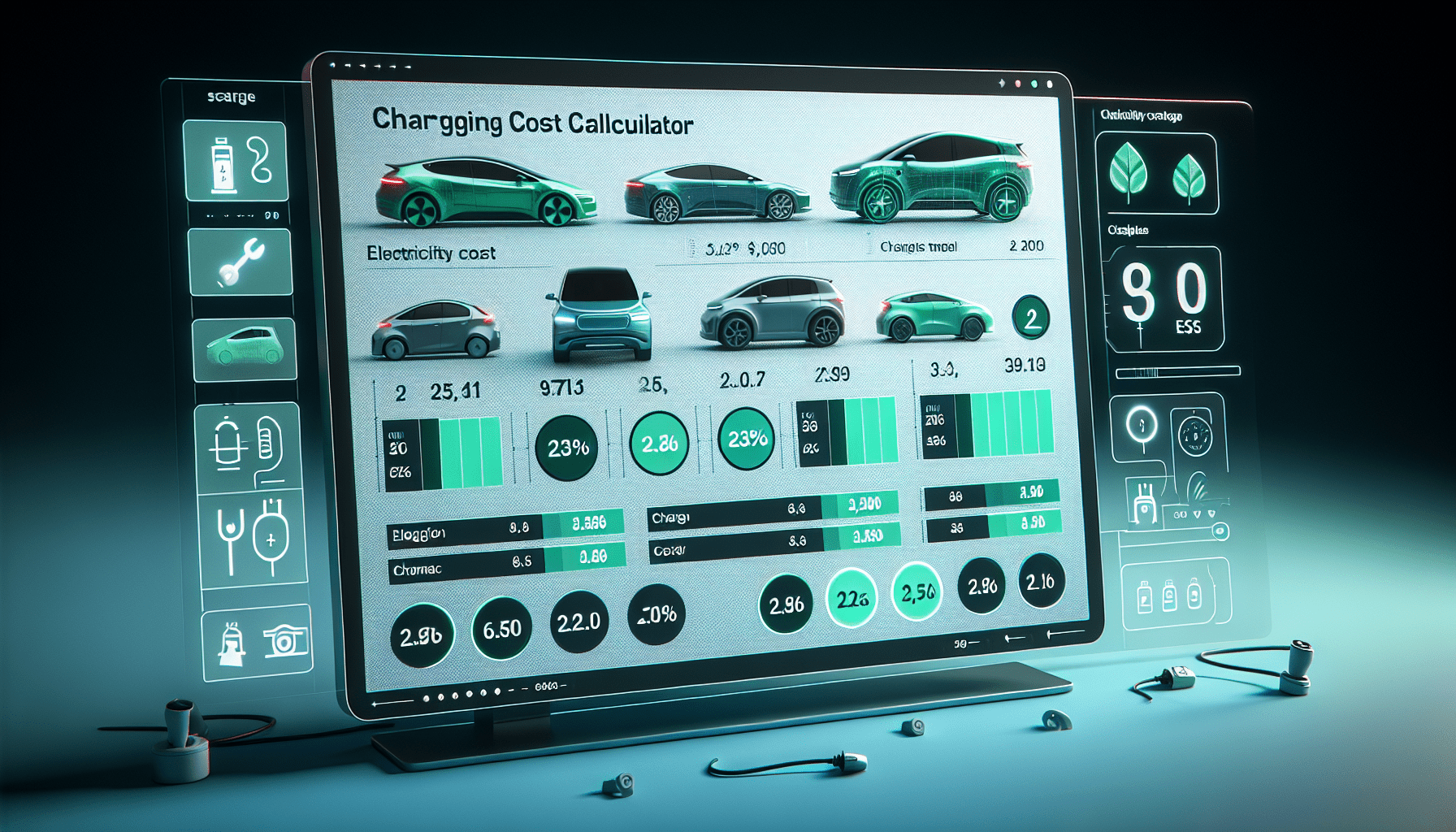Discover how to use EV charging cost calculator to compare 2025’s top EV models and make smarter decisions.

Introduction
Electric vehicles (EVs) are no longer a futuristic concept—they’re a mainstream reality. But as more drivers switch to EVs, one question dominates: “How much will it cost to charge my car?” Enter the EV charging cost calculator, a tool revolutionizing how owners budget for energy consumption.
In this guide, you’ll discover how to use EV charging cost calculator to compare 2025’s top EV models, uncover hidden savings, and make smarter decisions for your wallet and the planet.
Why This Matters: With global EV sales expected to hit 17 million units in 2024 (BloombergNEF), understanding charging costs isn’t optional—it’s critical for budget-conscious buyers.
Why Calculating EV Charging Costs Matters More Than Ever?
Transitioning to an EV isn’t just about reducing emissions—it’s about optimizing your finances. However, charging costs vary wildly depending on your car’s efficiency, local electricity rates, and charging habits.
For instance, a Tesla Model 3 might cost 12 for a full charge at home, while a Ford F−150 Lightning could run up to 12 for a full charge at home, while a Ford F−150 Lightning could run up to 25. Without an EV charging cost calculator, these numbers remain guesswork.
“Using an EV charging cost calculator isn’t just smart—it’s essential for avoiding bill shock,” says energy analyst Laura Green.
The Hidden Costs of Public Charging Public charging stations, while convenient, can be a budget trap. For example:
- DC Fast Chargers: Cost up to 0.50/kWh (vs.0.50/kWh (vs.0.15/kWh at home).
- Idle Fees: Tesla charges $1/minute if you leave your car plugged in after full charge.
- Membership Plans: Networks like Electrify America charge $4/month for discounted rates.
Pro Tip: Use apps like ChargePoint to filter stations by price—this alone can save $200/year.
How an EV Charging Cost Calculator Works?
An EV charging cost calculator simplifies complex variables into actionable insights. Here’s how.
- Input Your Model: Select your EV (e.g., Tesla Model Y, Hyundai Ioniq 6).
- Battery Size: Larger batteries (e.g., 100 kWh) cost more to charge.
- Electricity Rates: Enter your local rate (e.g., 0.15/kWh in Texas vs.0.30/kWh in California).
- Charging Frequency: Daily commuters vs. weekend drivers see vastly different costs.
Case Study – A Family’s Annual Savings: The Johnson family in Ohio compared three EVs using a calculator:
- Chevy Bolt EV: $550/year
- Tesla Model Y: $720/year
- Rivian R1S: 1,100/year, By choosing the Bolt, they saved 1,100/year, By choosing the Bolt, they saved 550 annually vs. their old gas SUV.
2024’s Top EV Models: Cost Comparisons
Let’s break down popular 2025 models using an EV charging cost calculator:
1. Tesla Model 3 (Standard Range)
- Battery: 57.5 kWh
- Range: 272 miles
- Cost Per Full Charge: 8.63(at8.63(at0.15/kWh)
- Annual Savings: Up to $1,200 vs. gas-powered sedans.
2. Ford Mustang Mach-E (Extended Range)
- Battery: 91 kWh
- Range: 314 miles
- Cost Per Full Charge: 13.65(at13.65(at0.15/kWh)
- Trade-Off: Higher upfront battery cost but lower long-term expenses.
3. Chevrolet Bolt EUV
- Battery: 65 kWh
- Range: 247 miles
- Cost Per Full Charge: 9.75(at9.75(at0.15/kWh)
- Ideal For: Urban drivers with access to cheap overnight charging.
4. Hyundai Ioniq 6 (Long Range)
- Battery: 77.4 kWh
- Range: 361 miles
- Cost Per Full Charge: 11.61(at11.61(at0.15/kWh)
- Perk: Ultra-fast 800V charging cuts public station costs by 30%.
5. Kia EV9 (Dual Motor)
- Battery: 99.8 kWh
- Range: 304 miles
- Cost Per Full Charge: 14.97(at14.97(at0.15/kWh)
- Best For: Families needing space but willing to pay premium charging rates.
5 Factors That Impact Your EV Charging Costs
While an EV charging cost calculator does the heavy lifting, understanding these variables empowers you.
- Peak vs. Off-Peak Rates: Charging after 9 PM could slash costs by 50%.
- Public Chargers: Fast-charging stations cost 2–3x more than home setups.
- Battery Degradation: Older EVs lose efficiency, increasing kWh/mile.
- Weather: Cold climates can reduce range by 20%, requiring more frequent charges.
- Driving Habits: Aggressive acceleration drains batteries faster.
- Regional Electricity Rate Variations: Your location dramatically impacts costs.
4 Hacks to Pair with Your EV Charging Cost Calculator
- Leverage Time-of-Use Plans: Sync charging with off-peak hours.
- Solar Integration: Pair home chargers with solar panels for near-free energy.
- Apps Like PlugShare: Find free or discounted public chargers.
- Precondition Batteries: Warm up your battery while still plugged in to save energy.
- Battery Buffering: Charge only to 80% to extend battery life and reduce long-term degradation costs.
The Future of EV Charging Costs: What 2024 Reveals
Automakers are racing to cut costs further. For example, Toyota’s 2024 bZ4X uses silicon-carbide semiconductors to improve efficiency by 30%.
Meanwhile, startups like Lucid Motors promise smaller, denser batteries. However, electricity prices remain volatile—another reason to keep your EV charging cost calculator bookmarked.
Vehicle-to-Grid (V2G) Technology – EVs like the Nissan Leaf now support V2G, letting you sell excess energy back to the grid during peak hours. Early adopters report earning 300–300–500/year in credits.
Conclusion: EV Charging Cost Calculator
An EV charging cost calculator isn’t just a tool—it’s your financial ally in the EV revolution.
By comparing 2024’s top models, optimizing charging habits, and staying ahead of trends, you’ll unlock savings that make every mile electric.
Ready to plug in? Start calculating today.
